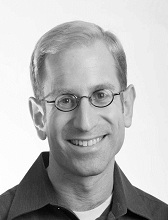A self-described policy wonk whose career has straddled the worlds of academia and government, Dr. Peter Weinberger says he feels right at home at START – a place he says is “on the cutting edge between policy and academic research.”
The former U.S. Institute of Peace program officer and professor at American University and George Mason University is a senior researcher at START focusing on countering violent extremism (CVE) and helping shape this key research area for the center.
What do you hope to contribute to START and its CVE portfolio?
I’d like to add some conceptual and methodological clarity to “what constitutes CVE.” I take an interdisciplinary approach, and hope to help make START’s growing framework for CVE the industry standard. I plan to add a focus on successful rehabilitation and reintegration programs, and I am especially interested in utilizing insights from trauma-sensitive approaches.
I think that understanding and addressing the impact of traumatic stress on individual and community resilience is key, and we can draw from recent findings in fields like neuroscience to help identify best practices.
I also hope to bring to START some of my experiences in designing CVE initiative internationally for USIP. I’m so proud of those efforts because I worked with wonderful people from countries like Pakistan, Kenya, and Nigeria—who are on the front lines against extremist violence.
How have you seen the concept of CVE evolve and change over the years?
CVE is still evolving. I think that, in the United States, the next administration—whoever that will be-- will have a lot to do with setting priorities for CVE. It can be a very political process. I think the key is use a scientific, evidence-based approach as guidance. There’s no cookie-cutter, or one-size-fits-all way to do it, but there are some approaches that can be held up as best practices.
How can CVE efforts help eradicate political violence and terrorism?
If you think of medicine as an analogy, CVE is preventative in orientation. It’s about trying not to get sick in the first place. But recognizing that one may still get sick, and if so, trying to intervene early on to try to get them better as soon as possible. And, if that still doesn’t work, then trying to educate individuals and communities about what went wrong and how to prevent it from happening again.
We will never be able to eradicate the problem altogether, but we can likely shrink it down to a smaller, far less lethal phenomenon.
Does your work in the CVE realm ever cross into your personal life?
My wife’s family live in Israel, so they are always engaging me in discussions about the complexities of life over there! My father-in-law has different political views than me, but he respects my opinion—I think. He’s a medical doctor and so relates to a scientific, analytical approach to problem solving. Whether it’s with my family or with people I am working with professionally, I try to take the same approach: to be a compassionate listener, to engage with people respectfully, and to try not to be judgmental.
Now that you’re out of the classroom, do you miss it?
I love teaching, and enjoy interacting with students. But I felt a pull to do applied research. I felt I had something valuable to contribute, and could make a difference.
I was a professor of international relations and conflict resolution. I taught classes like Arab-Israeli relations and Contemporary Islam and International Relations, and I tried to create an environment in the classroom, to make students think critically and creatively about the complexities of conflict and peace. I also took students on overseas trips for a while, to post-conflict areas like Northern Ireland and the Western Balkans. The idea was to learn about war and peace, post-conflict reconstruction, and then see it in practice. I used to try to show the students about “parallel realities” of conflict zones, how two communities can live side-by-side, but have no shared sense of history or objective reality. It helps teach how peace building is so difficult.
But even outside of a classroom, I’ve found ways to teach, and felt a calling to it. My principal success with USIP in the states was as a teacher, teaching practitioners and other “policy wonks.” I learned to de-theorize very complex ideas and explain them in ways that folks in policy could use in their work.
Your work has taken you all over the world – any favorite places you’ve called home?
I lived in London when I did my doctoral studies. It was there that I really grew as a researcher and writer. I have a great deal of respect for the British people, who are proud but also decent and kind. I think those are good characteristics. I am also good at impersonations, and so I also loved living in such a cosmopolitan place, where I picked up the accents of people from all over the world.
Has becoming a parent influenced your research agenda?
Like all parents and caregivers, I want my daughter to live in a safe place and to protect her from danger. That is a powerful motivator! When I read or hear about children that have been killed in violence and conflict, it tugs at my heart. I think also that being a parent gives me something in common with people all over the world, a way to build some empathy.
I still take my work as an educator and researcher seriously, but not myself. There’s just so much out there to do and enjoy, like spending time with friends and family. I love living in the D.C. area for many reasons, but it’s especially to visit museums and historical sites.
